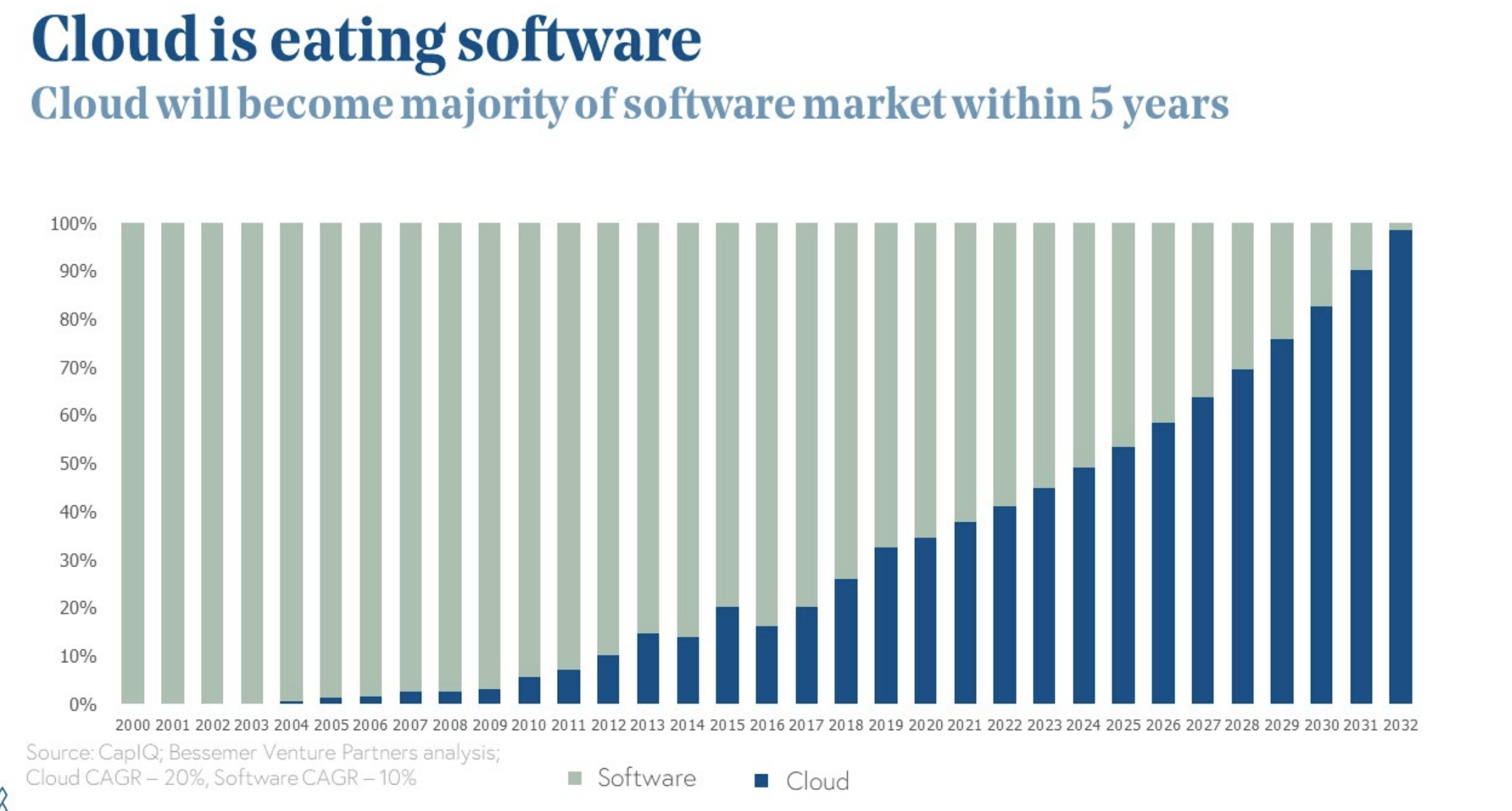Miscellaneous
• 3 min read
The Case for Building a SaaS Management Tool Ground Up
2nd September, 2020
SHARE ON:
In the early part of my career (circa 2010,) I had the privilege of working with some large Fortune 500 enterprises. During those days, the cloud wasn’t still too mainstream (Market Size - 5.56 Billion USD,) and we were all fascinated looking at the data centers managed and maintained by my employer.
The SaaS Movement: SaaS is Eating the Cloud
The IT asset management software acted as the command center that effectively helped the organization manage, support, and secure the assets in the data center. Today, the landscape has changed drastically, and the cloud market has grown ~60x since 2008 (Market Size - 375 Billion USD in 2020).
As mentioned in the earlier post, SaaS is at an infancy stage worldwide. It will grow significantly in the years to come (expected market size - $832.1 Billion by 2025).
This shift to the cloud poses an enormous challenge to the traditional IT Asset Management (ITAM) model. A large portion of the assets are moving to the cloud, and Software Asset Management (SAM) is gaining prominence.
On the other hand, also gone are the bloatware days where many tools came bundled in one package. I remember Microsoft Office used to come with more than five tools, and I never used anything beyond Word, PowerPoint, and Excel.
Also, some of the other tools had excellent alternatives in the market. However, the enterprise software locked us in with specific tools that are not the best in the breed from a usability and productivity perspective.
With the emergence of SaaS players, we have seen an end to bloatware. Today, individuals & enterprises can subscribe to the best-in-class software at a fractional cost in a decentralized manner. SaaS adoption is growing multi-fold, and in the not-so-distant future, it is expected to be the default option to consume enterprise software.

Traditional Software Asset Management Tools Can't Manage SaaS
We see two emerging trends:
Traditional assets, such as servers, are moving to the cloud, and we see the emergence of AWS, Azure, and GCP
Enterprise software will be consumed only in a SaaS delivery model in the next ten years.
Both these trends have huge repercussions on the traditional IT Asset Management (ITAM) and Software Asset Management (SAM) models.
Some of the critical challenges are:
Decentralization: The unit cost of SaaS tools being meager has made the try & buy decision frictionless for teams and individuals. The end users can purchase the tools using their credit cards and deliver the outcomes. The model of managing the licenses centrally using the traditional software asset management tools is dead.
Costs Add Up: Given the low unit cost, the attention given to renewal & termination of the SaaS licenses in organizations is minimal. Though the unit costs are lower, the costs increase and translate to a more significant number at an organization level. If you can’t monitor these, you cannot manage these.
Data Sprawl: With the wide adoption of SaaS tools in a decentralized manner, organizations are losing control over the data and its security. This problem is going to increase with the increase in the adoption of SaaS tools.
Access Control: In a SaaS environment, given the SaaS applications' decentralized usage, on-boarding and off-boarding of users and management of their access privileges is an impossible task leading to system access to rogue users.
Compliance: The compliance and regulatory mandates across industries have increased multi-fold. There is a need for every SaaS tool being used to adhere to the organization’s regulatory and compliance practices. Do the buyers of these tools know about the compliance requirements of the SaaS tools?
As you can see, these challenges are just the tip of the iceberg. IT Software Asset Management platforms are not designed to handle these scenarios, and managing the new environment requires a new breed of software designed with the SaaS first approach.
We are determined to build a comprehensive SaaS management platform that holistically solves the challenges that come with the adoption of cloud and SaaS.
About the author
Ritish is one of the co-founders of Zluri, the SaaS management tool for IT teams. He leads the Marketing and Partnerships as part of his role. Before Zluri, he was part of the founding team at KNOLSKAPE and Co-Founder at Cranium media. Ritish is an MBA graduate and is passionate about building, and scaling businesses ground up. He is an avid reader and loves exploring book stores and libraries in different parts of the world. He loves painting with his 4-year-old daughter.
Related Blogs
See More
Subscribe to our Newsletter
Get updates in your inbox
